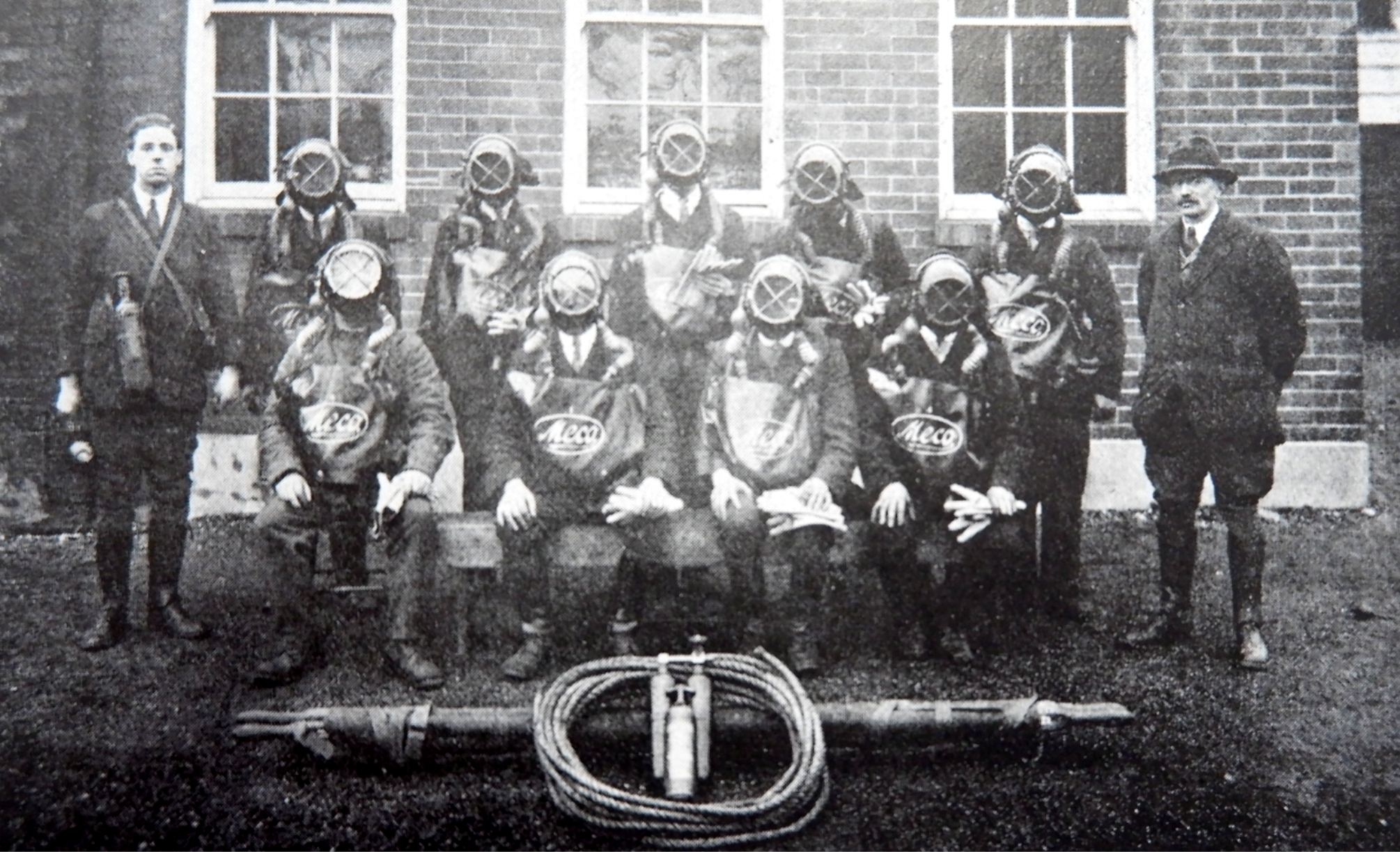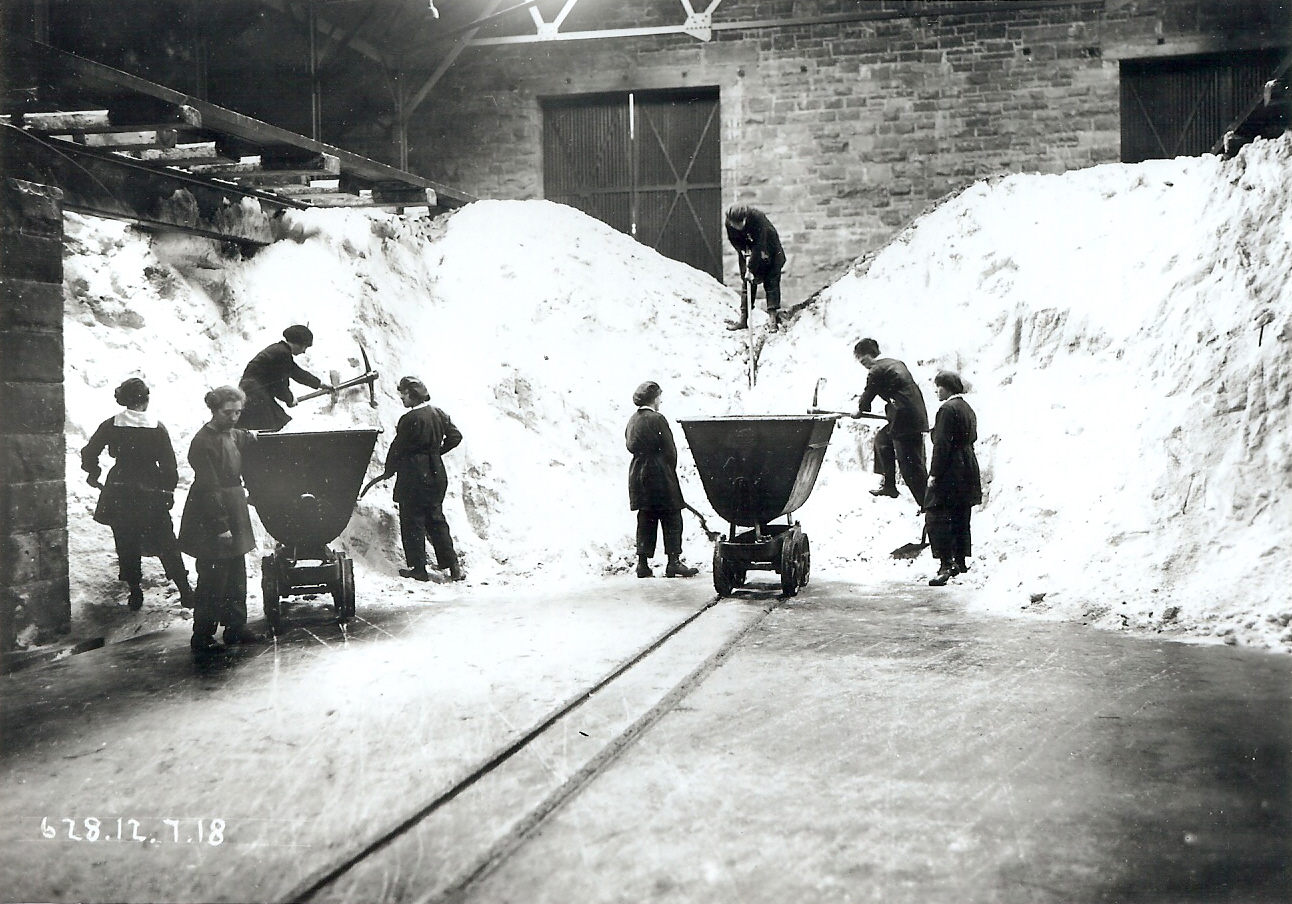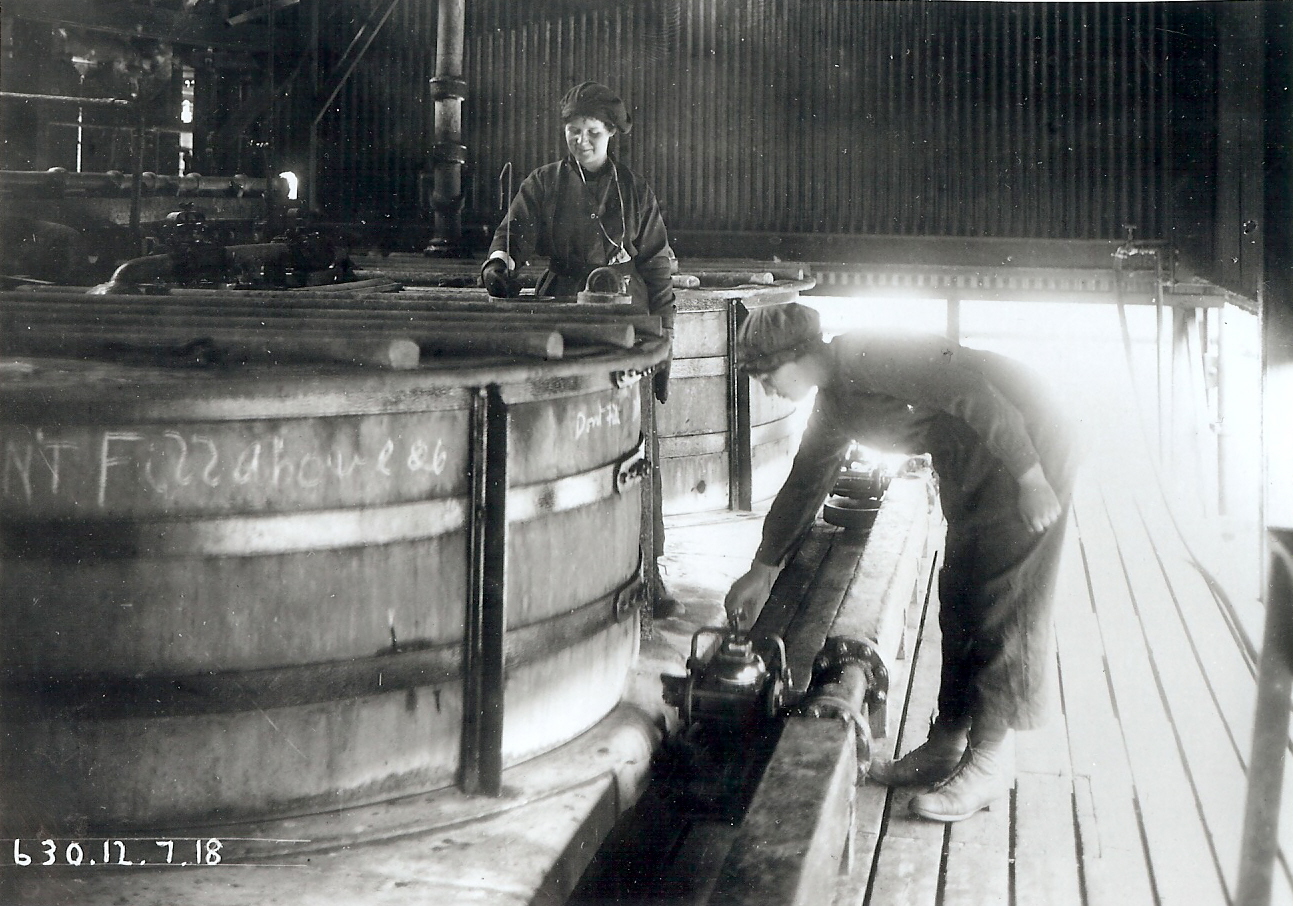
The Devil’s Porridge Museum is primarily focused on sharing the history of HM Factory Gretna, the greatest munitions factory on earth in World War One; it employed 30,000 workers, 12,000 of them women. The Museum is situated near one of the main factory sites (which is still owned by the Ministry of Defence today).
The purpose of the Factory was to produce cordite. One of the main ingredients of cordite is acid and although safety precautions were taken, we know of several accidents that involved contact with acid.

Female workers in the Nitric Acid retorts, the Nitric Acid Store at HM Factory Gretna.

Female workers at HM Factory Gretna working in the Acid Mixing Stations – measuring off nitric acid.
We know of the following incidents involving accidents with acid:
In 1917, W G Martin, a charge hand had his “face, head and right arm hurt with acid due to exit valve of pump blowing out.” Because his right eye was destroyed by the accident, he was offered £300 in compensation.
On 4th January, 1918, Jonathan Leah died. He had been injured on September 20th 1917 when he was working on pipes in the Factory. He struck a pipe with a hammer and acid sprayed onto his face. His left eye had to be removed and he died as a result of this injury.
Arthur Gilliam was working on an acid tank when he was overcome by noxious fumes. He died in hospital.
The photograph below shows the Volunteer Rescue Brigade for the Acid Section equipped with protective uniforms and a stretcher. They would have been sent in had there been a major acid leak or incident, fortunately a large scale leak did not occur.

